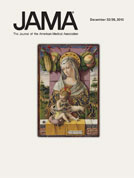 The journal Scoliosis has retracted a 2012 paper by a pair of German spine doctors over what the editors have called a less-than-fully declared conflict of interest involving one of the authors.
The journal Scoliosis has retracted a 2012 paper by a pair of German spine doctors over what the editors have called a less-than-fully declared conflict of interest involving one of the authors.
That should be relatively straigtforward – but it’s not quite. Turns out the article does include a disclosure, although perhaps the information it contains was incomplete.
The article, “Soft braces in the treatment of Adolescent Idiopathic Scoliosis (AIS) – Review of the literature and description of a new approach,” was written by Hans-Rudolf Weiss and Mario Werkmenn. Weiss, it seems, has something of a pedigree in the field. According to this website, he practices the “Schroth method” of recurvature, a technique pioneered by his grandmother, Katharina Schroth. From the site: Continue reading Lack of conflict of interest disclosure undoes scoliosis study




